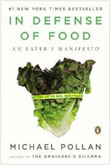Why Such Slow Action on Climate Change?
Brandon Sun, January 14, 2019 – David McConkey
Thirty years ago, Time magazine’s “Person of the Year” was neither a man nor a woman. Instead, for 1988, the “endangered Earth” was named Planet of the Year. The magazine summed it up: “The problem: greenhouse gases could create a climatic calamity.” The question for today: if we have known about this issue for 30 years, why have we been so slow to act?By the late 1970s, scientists had concluded that a buildup of greenhouse gases such as carbon dioxide was causing global warming. By the late 1980s, this was widely accepted by the public and by politicians across the political spectrum. Running for election to be U.S. president in 1988, George H. W. Bush proposed countering the “greenhouse effect” with the “White House effect.” In 1989, U.K. Prime Minister Margaret Thatcher made a major speech about the issue at the United Nations.
Let’s clear up one vital point right away. Could there be natural causes to global warming? Just how certain is the science? Yes, there is more than one factor at play; yes, there is some uncertainty. But here is the conclusion from a recent U.S. government report: “It is extremely likely that human activities, especially emissions of greenhouse gases, are the dominant cause of the observed warming since the mid-20th century. For the warming over the last century, there is no convincing alternative explanation.”
Climate change is one of the most studied phenomena ever. There is a scientific consensus: not only is there human-caused global warming, but also that humanity should reduce emissions of carbon dioxide to address the problem.
The oil industry is convinced. By the 1980s they were changing their own operations in anticipation of climate change, like raising ocean drilling platforms to account for higher sea levels. Some in the industry envisioned switching from marketing fossil fuels to renewable and nuclear energy. But by the early 1990s, they had adopted the approach used by tobacco companies: stall and promote doubt in the minds of the public.
Where are we at now? On the one hand, the picture looks grim, with world carbon dioxide emissions still increasing. Here in Canada, the Justin Trudeau Liberals have introduced a token carbon tax, which they cannot even properly explain. The Andrew Scheer Conservatives – besides pledging to get rid of the carbon tax – don’t even have a policy. And this is after 30 years!
On the other hand, there are some bright spots. In Canada and the U.S., there appears to be more public concern. The next federal election in both countries could feature climate change as a central issue. There is a generational shift as the last of the baby boomers exit the stage and more environmentally aware generations take charge.
The oil industry, perhaps recalling the fate of tobacco companies, is reversing course. Now big oil companies are not just acknowledging the problem of climate change, they are actually spending millions lobbying for a carbon tax!
Ignoring climate change is easy. The problem seems far in the future, far away geographically and far too scary. We humans did not evolve to consider matters this large and this complex.
Our challenge as global citizens is to recognize this existential crisis. Tackling climate change has been compared to the effort required to win the world wars of the 20th century. We need to see a carbon tax not as the be-all and end-all, but simply as a good start.
The judgment of future generations will be harsh. “You knew about climate change for decades. Yet you couldn’t act?” they will say to us. “Previous generations of Canadians joined in fighting and winning the First and Second World War. Yet you couldn’t pay a carbon tax?”
Even though the effects of global warming were only beginning to be noticed 30 years ago, the unfolding crisis was clearly understood. Now that we can observe the effects, maybe we can listen again to those earlier voices.
“The danger of global warming is as yet unseen but real enough for us to make changes and sacrifices so we may not live at the expense of future generations,” Prime Minster Thatcher told the UN in 1989. “That prospect is a new factor in human affairs. It is comparable in its implications to the discovery of how to split the atom, indeed its results could be even more far-reaching.”
See also:
A History of Struggling to Grasp Climate Change Reality
What You Need to Know About Climate Change Sam Harris Podcast
Reflections on Themes from Top 10 Book Lists
Science, Experts and Flu Shots
Popular Right Now:
- 15 Tips for Healthy Eating
- Quality of Life, Well-Being Research Something We Can Feel Good About
- Diets Don't Work, So What Does?
- Political Contributions: Top Ten Canadian Tax Tips
- Nestle Fitness 14 Day Weight Loss Program; What is Wrong Here?
- Charitable Donations: Top Ten Canadian Tax Tips
Must Read Books:
The 4-Hour Workweek:
Escape 9-5, Live Anywhere, and Join the New Rich

What You Don't Know About Religion (But Should)

In Defense of Food:
An Eater's Manifesto

The Life-Changing Magic of Tidying Up:
The Japanese Art of Decluttering and Organizing

Don't
Even Think About It:
Why Our Brains are Wired to Ignore Climate Change

Like This? Share It!
Press Ctrl + D to Bookmark!
